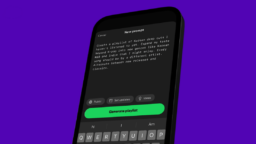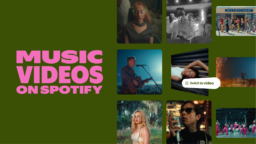Last week brought the positive news that the US’s National Music Publishers’ Association (NMPA) had reached an out-of-court settlement agreement with Spotify regarding unmatched (and unpaid) publishing royalties on its service.
The deal is believed to be worth a total of $30m, with $25m attributed to due royalties from the service plus a further $5m bonus/penalty payment.
The $25m sum will be shared amongst publishers and songwriters based on the usage of their music, while the further $5m will be split between publishers on a market share basis.
Songwriters and publishers will have three months from the beginning of April to decide whether they want to opt-in to the settlement.
Not everyone is completely positive about the news, however. On Friday (March 18), the legal company Michelman & Robinson, LLP warned songwriters to think very hard about the consequences before signing up to the NMPA’s deal.
“Any service that does not reach an appropriate settlement can expect a very different path than the one spotify is now enjoying.”
David Israelite, NMPA
Michelman & Robinson, to be clear, has something of a one-sided interest in such outcomes: it is representing David Lowery in his $150m class action lawsuit against Spotify over allegedly unpaid US mechanical royalties.
If songwriters sign up to the NMPA deal, they will be unable to participate in the Lowery class action suit.
It’s a big decision for creators – but today we hear the other side of the story.
David Israelite (pictured), CEO of the NMPA, tells MBW in our short but to-the-point Q&A below that he expects all major publishers to sign up to his organisation’s settlement.
And in an interesting note of caution for Spotify‘s rivals, he suggests that should the NMPA not be able to reach similarly friendly settlements with other platforms, its course of action may have to turn more hostile…
Congratulations on reaching a deal with Spotify. Last year you estimated as much as 25% of publishing rights in the US had not been matched on streaming services. How far does this monetary settlement go to making up for that lost revenue?
It gets us to the right place with Spotify.
Publishers who opt in not only will get all of the royalties owed to them for the past, but they also will participate in a generous bonus pool as well as get a market share of any unclaimed monies.
In addition, it provides a framework to work on these problems in the future so that we do not find ourselves in the same place down the road.
The NMPA has 2500+ publisher members. Even if Billboard‘s $25m – $30m estimate of the settlement is correct, won’t that amount of publishers, taking their net share then passing the money onto songwriters, risk dilution to a less-than-worthwhile degree for many?
NMPA represents around 500 top level publishers, and those publishers represent virtually the entire commercially relevant publishing community.
When 100% of the royalties owed are paid, along with a $5 million bonus pool, it will be worthwhile for every music publisher to opt in.
Is it true that a condition of signing up to the settlement is to waive a right to join David Lowery’s class action lawsuit? If so, what would you say to a songwriter or publisher who reasons: ‘But he’s going for $150m, which is more than NMPA’s reported deal.’
David Lowery is a great songwriter and an incredible advocate for all creators. Nothing we are doing should be seen as in conflict with his efforts.
Publishers will have a choice – opt in to our settlement, or potentially be represented by one of the two class action lawsuits that have been filed, assuming they achieve class status.
“I am concerned about the class action lawyers commenting on our settlement. their motives seem quite obvious.”
David Israelite, NMPA
I am concerned about the class action lawyers commenting on our settlement.
In addition to there being an ethical question regarding such comment, these are lawyers who are hoping for a bigger payday, so their motives seem quite obvious.
Do you expect that your major members will sign the settlement?
I do, and I also expect the vast majority of independent publishers will opt-in as well.
What can you tell us about Spotify’s new database and NMPA’s involvement in / funding of it? Some have suggested that a single service building an industry-standard rights database is a worry or even anti-competitive. Is there any credence to that point of view?
Spotify has announced it intends to build a database. We support that effort, and are happy to provide guidance as they attempt to do so. How it will be used is not yet clear.
In addition, I believe the entire industry needs to discuss a permanent solution to this issue that helps make licensing easier, but also protects the ability of songwriters to be paid a fair, free market rate.
What do you consider the key reasons why Spotify got itself into this situation, and are you expecting to strike similar settlement deals with other services who are struggling with the same challenges?
I hope that this settlement will be a model for future settlements with other services that have the same problem.
We are interested in settling these issues on fair terms, and also working together to be good business partners in the future.
Any service that does not reach an appropriate settlement can expect a very different path than the one that Spotify is now enjoying.Music Business Worldwide





